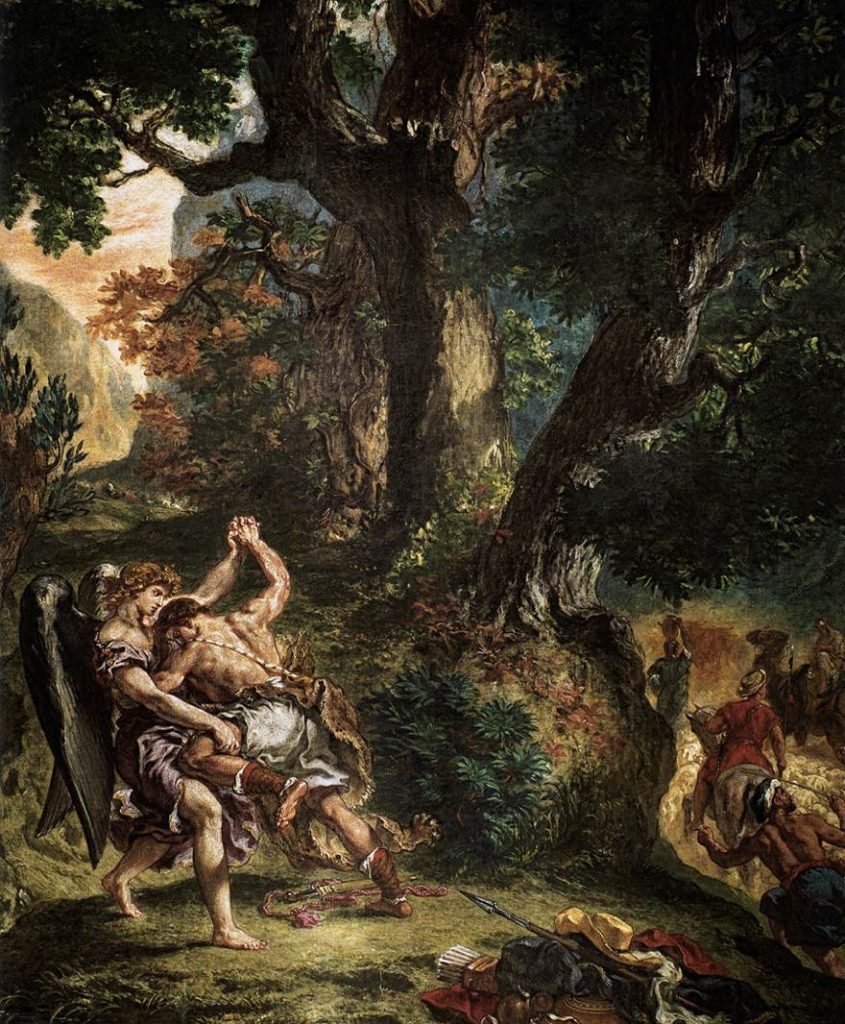Not long ago, devotion to the guardian angels was quite popular — and for good biblical reasons. The plot of the Acts of the Apostles is borne forward by the action of angels. Angels set the apostles free from prison (5:19, 12:7). An angel guides Philip from Jerusalem to Gaza for his meeting with the Ethiopian court official (8:26). Angels bring about the meeting of Peter and Cornelius (10:3-5).
The story of the Church moves forward with the guidance, protection, and assistance of angels. So do our lives. The early Christians knew this.
We need to have such faith and such a lively awareness of our guardian angels. For God has given us the same powerful heavenly guidance, protection, and assistance.
Devotion to the angels did not arise as something new with the proclamation of the Gospel. It has always been part of biblical religion. Angels fill the Bible, from beginning to end. They are among the key players in the drama of the Garden of Eden. They appear frequently in the life of the patriarchs: Jacob even wrestles with one. They go before the Israelites during the exodus. They deliver God’s word to the prophets.
The New Testament opens with an explosion of angelic activity. Neither Joseph nor Mary seems particularly surprised to receive the help of angels.
Still today, when a priest offers Mass, the congregation is never small, even if it is nonexistent in terms of human attendance. The angels are there, as is evident even in the words of the Mass: “And so with all the choirs of angels we sing …” The Mass itself cries out for us to be aware of our angels.
From the time we are smallest, each of us has a guardian angel. Jesus said, “See that you do not despise one of these little ones; for I tell you that in heaven their angels always behold the face of my Father who is in heaven” (Matthew 18:10).
God provides these guides so that we may have superhuman help on our way to heaven. Our guardian angels want to help us do God’s will, and they want to keep us from sinning. They want to help us to help others — and they want to keep us from mucking up the lives of others. They want the best for us, which does not always coincide with the things we desire most. The difficult fact is that what’s best for us does not necessarily correspond with our comfort, health, or safety. Sometimes suffering is what’s best for us, if only because it keeps us from sinning or tempting others to sin.
Still, our guardian angels do work diligently to win our trust. So they help us sometimes to find an open parking space or navigate a confusing grid of city streets. The angels follow after God’s pattern of governance: They sometimes give us what we want so that we’ll learn to ask for what we need.
The guardian angels’ feast day is coming up on Oct. 2. The archangels’ feast is on Sept. 29. Remember to celebrate!

